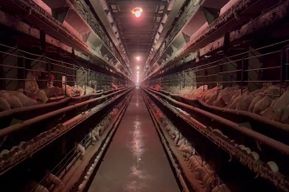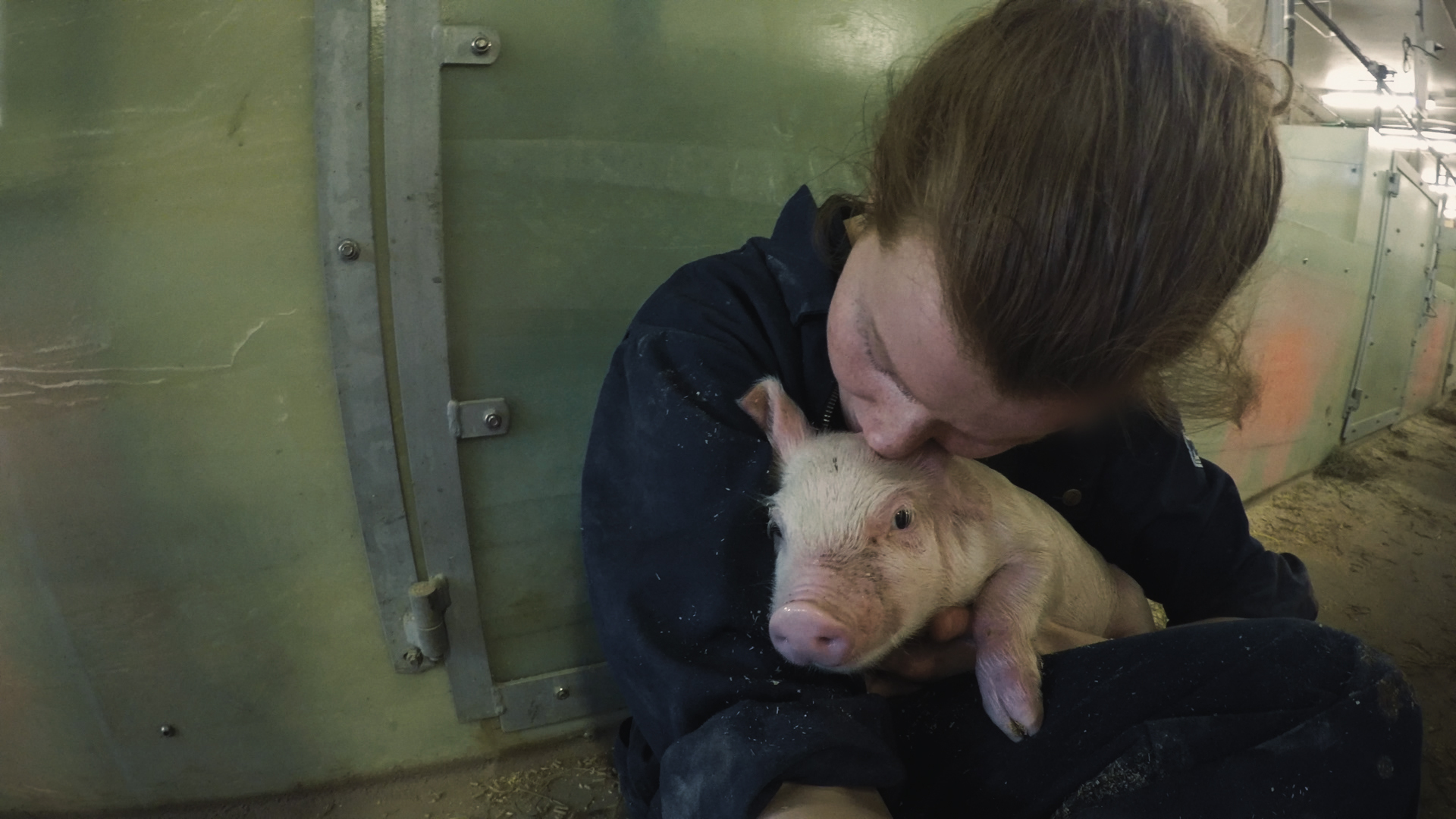
We have 30 days to take on Goliath – again
November 12, 2025
September 1, 2020
Waagen’s newest film, The Secret Lives of Pigs (Griseindustriens hemmeligheter in Norwegian), was screened on Norwegian television in July 2019, and led to an even bigger media uproar than his previous films. By following a young teacher who decides to investigate the pig industry, The Secret Lives of Pigs challenges the Norwegian myth that Norway has the highest animal welfare in the world.

Ola Waagen is a filmmaker with a strong sense of civic duty and a special interest in political documentaries and the impact of storytelling. His 2014 documentary film Inside Fur (Pels in Norwegian) has been screened in festivals and on television all over the world, and has won several awards. It was the most discussed Norwegian documentary the year it was released. The film raised the question of the ethics of fur farming—a debate which led to the passage of a ban on fur farming in Norway in 2019 which will take effect in February 2025.
Konrad Łoziński of Otwarte Klatki spoke with Waagen:
Konrad Łoziński: How did you decide to use professional documentaries as an activism tool?
Ola Waagen: My background in activism comes from a desire to shed light on blind spots in how we as a society view the world, and I’ve also always had a passion for cinema and photography. At some point documentary filmmaking just seemed like the perfect way to combine these.
KL: Why did you decide to do these films with undercover investigators?
OW: The decision to go undercover came, in both cases, first from the investigators themselves. I think undercover work gives the most unfiltered and truthful view possible of how these industries operate. It gives a unique look not only into the everyday operations of these industries, but also the attitudes of the people involved. The industry intentionally misrepresents both of these aspects to the public, so undercover work is one of the few ways to expose what’s really happening.
KL: Your investigators play an important role in these movies. Could you tell more about the decision to make them protagonists rather than simply anonymous activists?
OW: Initially it came from my own curiosity. I wondered myself what it would be like to be in such an extreme situation. But in addition to being a story that I myself would want to see, it also seemed like a good way to reach a wider audience. People are interested in other people’s stories, not just the suffering of animals in and of itself. If the investigators were anonymous they could come off as extremists or criminals (which they aren’t) and it would be almost impossible for the audience to relate to them. It’s essential that we trust them since they’re guiding us on a journey into this dark world we’d otherwise never be allowed to see.
KL: The undercover investigators in your films—Frank and Norun—didn’t have previous experience with these types of investigations. What were the biggest challenges they faced during these projects?
OW: There are numerous challenges when doing such intensive investigations. You can prepare yourself for the technical aspects, and to some extent the isolation. But being an empathetic person, it’s impossible to really prepare yourself for having to take part in animal abuse. It can also be difficult to handle the emotions that come with betraying the trust of your fellow workers, who you often build relationships with.

KL: Both investigators evolve in the way they perceive farmers. Could you elaborate on that?
OW: Entering a system from the outside, like these undercover investigators have done, makes it easier to understand the systemic nature of the problem. You see that the farmers and workers also are just cogs in the wheel, and have much less influence over the situation than you might have thought. I think this evolution of perspective is a result of approaching the situation with empathy. If you want to be an effective undercover investigator you can’t approach these people with hatred. You have to try to see the world from their perspective and understand their own struggles. You often discover that they are good people stuck in a horrible situation.
KL: Your films had a great impact on the public debate about animal agriculture. Can you tell more about the reception in Norway?
OW: The reception in Norway was unlike anything I’ve seen before. “The Pig Scandal,” as the media called it, became the top story for weeks—with hundreds of articles and commentaries in print newspapers and even more online. It was all over social media, became the top trending topic on Twitter, and the biggest influencers in Norway all talked about it. The best part was that practically all attention was unified in its response: people were shocked to see this happening in Norway and felt that this type of treatment of animals was not acceptable.
As a result, the Norwegian Government established new legislation in record time, the Attorney General asked for an investigation into the offences exposed in the film, and restaurant and grocery chains decided to change their policy regarding selling and advertising pig meat. There were even pig farmers who contacted the farmers union after the film aired and said they’d decided to quit their production. The biggest meat company in Norway said “This marks a new time for Norwegian pig farming. There must be a before and after this film.”
KL: Norun’s investigation for The Secret Lives of Pigs took five years. Is she still campaigning for animal rights now that she has finished her undercover work and revealed her identity?
OW: Yes, Norun is more engaged than ever. She has quit her job as a teacher and now advocates for animals full time, trying to support this work through her Patreon page. One of her main focuses has been on meeting with politicians to get animal issues on the political agenda. This has been quite effective and has led to increased awareness and even parliamentary votes. She also does social media campaigns, travels around holding lectures, does research, and keeps releasing more undercover footage from her investigations that did not make it into the film.
KL: Are you planning to make more films about animal exploitation in the future?
OW: I’m working on some new projects at the moment, but it’s still too early to talk about them. But I’m always looking for new stories on this topic, so if anyone has ideas that have the potential to become a film, please feel free to contact me.
KL: Do you have any advice for activists who would like to use film as a tool to combat animal exploitation?
OW: My main advice would be to focus on the story. I feel the focus too often is on equipment, technical photo skill, or getting the most horrific images. The storytelling aspect is often forgotten. Stories are really the most effective tool we have in our toolbox. Changing the world means changing the collective stories we as a society tell ourselves. If you want to change the world, you have to become a good storyteller. The film is one of the most impactful ways of telling stories, so it’s a great start, but without the building blocks of an engaging story it's just images. Like photography, storytelling is a learnable skill—so spend as much time as possible honing that skill.
Konrad Łoziński is an activist at Otwarte Klatki and a photographer documenting the realities of animal exploitation on factory farms.